
Revolutionizing Glioblastoma Treatment
neurosciencenews.com
April 15, 2024, 1:33 p.m.
Researchers demonstrated significant initial success using CAR-T therapy for glioblastoma, a notoriously deadly brain cancer. They detailed the outcomes of the first three patients in a Phase 1 clinical trial who experienced dramatic tumor reductions shortly after treatment. This innovative approach combines CAR-T cells with bispecific antibodies to more effectively target the heterogeneous cell populations within solid tumors. While the initial results show promise, the team is exploring ways to enhance the longevity of the therapy’s effectiveness.
Share on

VBI Vaccines Presents Encouraging Early Tumor Response Data From Randomized Controlled Phase 2b Study of VBI-1901 in Recurrent Glioblastoma
www.biospace.com
April 9, 2024, 12:43 p.m.
Early data from patients eligible for evaluation at week 12 show two observations of stable disease, indicating no tumor progression, in VBI-1901 treatment arm (n=2/5; 40% disease control rate [DCR]) By comparison, no tumor responses have been observed in the control arm to-date (n=0/6; 0% DCR), with all patients seeing a 2-8x increase in tumor size by week 6. FDA has granted both Fast Track Designation and Orphan Drug Designation to VBI-1901 in recurrent GBM following encouraging Phase 1/2a study results
Share on

Investigating mechanisms of aggressive glioblastoma tumor growth
medicalxpress.com
April 1, 2024, 11:03 a.m.
Treating glioblastoma is particularly difficult because the tumor recruits immunosuppressive macrophages—white blood cells that defend the body against disease and infections—into the tumor microenvironment to support the tumor's growth and make the tumor more resistant to therapy, said Peiwen Chen, Ph.D., assistant professor of Neurological Surgery and senior author of the study.
Share on
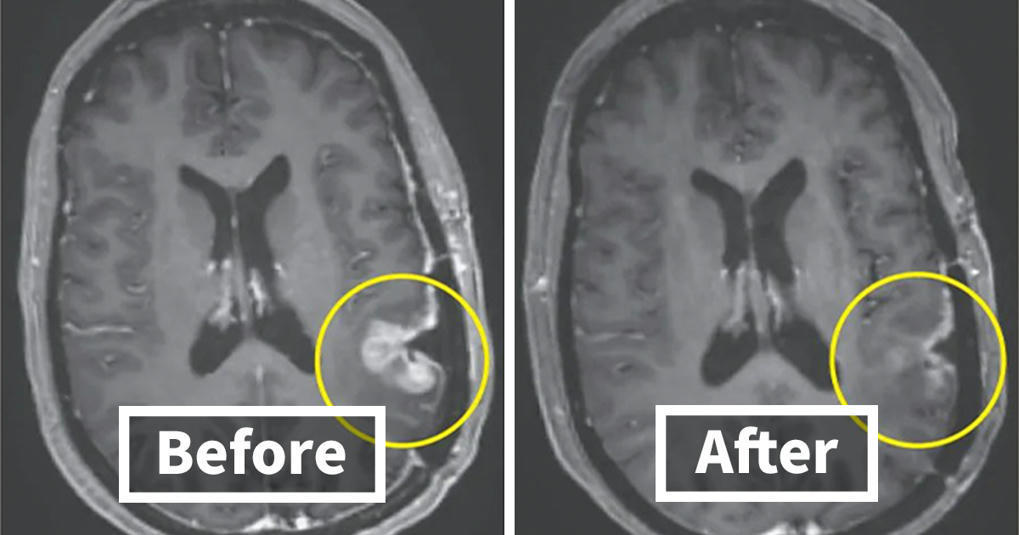
Glioblastoma Patient Sees Tumor Almost Disappear In Days Thanks To New Breakthrough
www.boredpanda.com
March 25, 2024, 4:01 p.m.
A new treatment to fight an extremely aggressive type of brain tumor showed promise in a pair of experiments with a handful of patients. The strategy is focused on treating glioblastoma, one of the deadliest types of cancer, which is only diagnosed at stage 4 and has a five-year survival rate of around 10%.
Share on
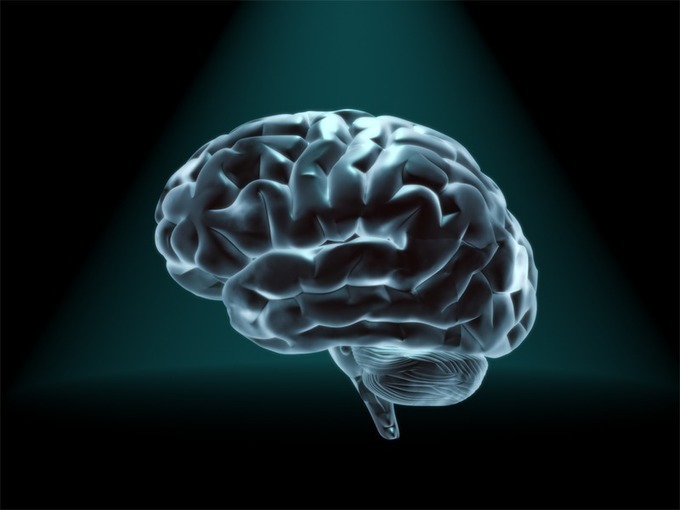
Brain cancer breakthroughs using the immune system offer hope against glioblastoma
medicalxpress.com
March 25, 2024, 4 p.m.
A flurry of new studies suggest scientists are finally figuring out how to harness the immune system to attack a ruthless form of brain cancer. While preliminary, the results offer hope that progress is possible against glioblastoma, the terrible form of cancer that so swiftly took the lives of Arizona Senator John McCain and President Joe Biden's son Beau.
Share on
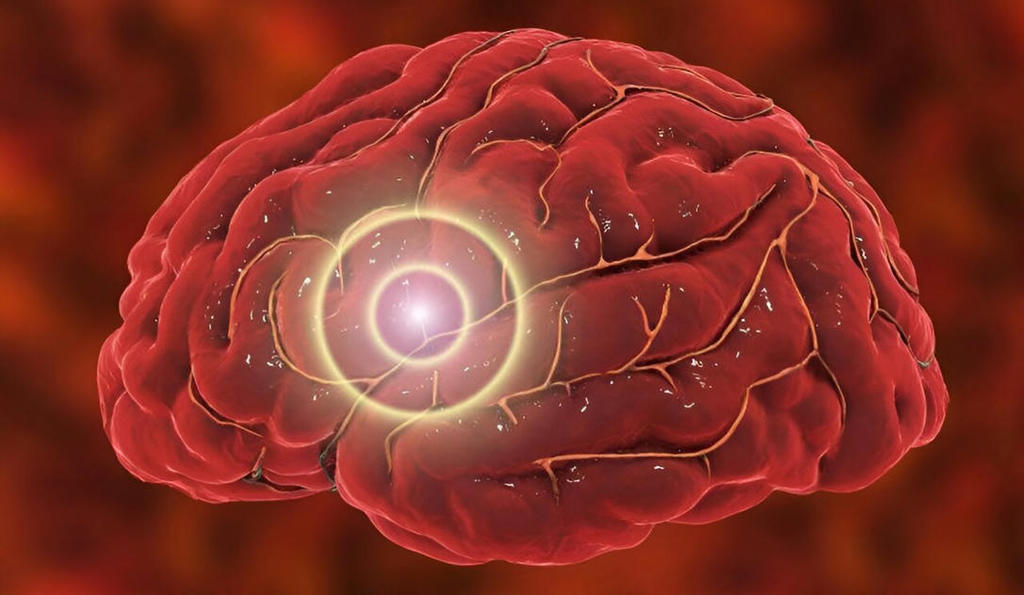
CARv3-TEAM-E T-cell treatment beneficial for recurrent glioblastoma
medicalxpress.com
March 25, 2024, 4 p.m.
For patients with recurrent glioblastoma, treatment with chimeric antigen receptor (CAR) T-cells engineered to target the epidermal growth factor receptor (EGFR) variant III tumor-specific antigen, in addition to the wild-type EGFR protein, through secretion of a T-cell-engaging antibody molecule (TEAM; CARv3-TEAM-E) results in radiographic tumor regression, according to a study published online March 13 in the New England Journal of Medicine.
Share on
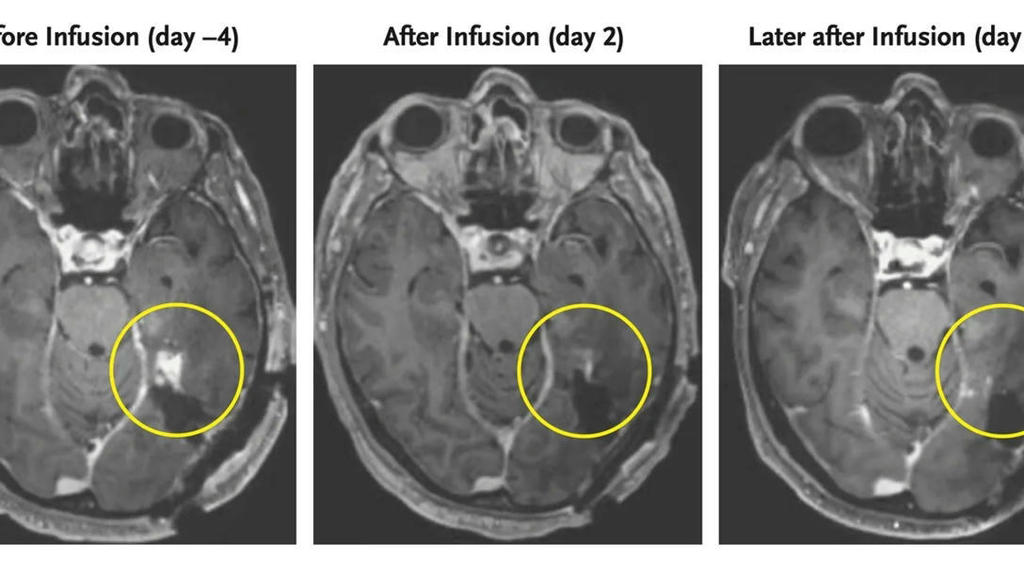
Breakthrough CAR T-Cell Therapy Shrinks Glioblastoma Tumors, Sparks Hope for Solid Cancer Treatment
bnnbreaking.com
March 17, 2024, 2:41 p.m.
Researchers have embarked on a promising path by employing a dual-target CAR T-cell therapy against glioblastoma, the most aggressive form of brain cancer in adults. This innovative strategy focuses on attacking two specific proteins found in the tumors, marking a significant departure from traditional treatments. In a pioneering study, all six patients treated exhibited reduced tumor sizes, showcasing the potential of this approach to combat solid tumors effectively. However, the challenge remains to enhance the durability of these therapeutic effects, as tumor regrowth was observed in some patients.
Share on
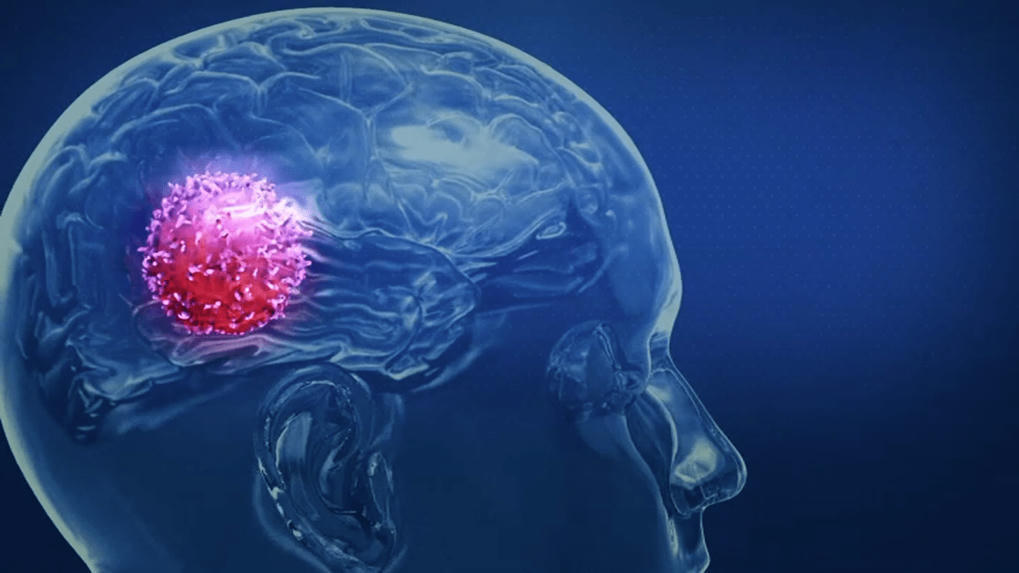
MGH glioblastoma brain cancer treatment –
www.nbcboston.com
March 17, 2024, 2:39 p.m.
In Mass General's test, tumors in three patients rapidly began shrinking within a couple of days, the researchers reported in the New England Journal of Medicine — "None of us could really believe it," Dr. Marcela Maus said
Share on

A promising glioblastoma clinical trial: Cancer researchers say tumors dramatically shrunk –
www.theoaklandpress.com
March 17, 2024, 2:38 p.m.
A Phase 1 clinical trial out of Massachusetts General Hospital in Boston recently used a new cell therapy in patients with recurring glioblastoma. Just days after a single treatment, the tumors dramatically reduced in size, according to the Mass General Cancer Center researchers. One patient even saw near-complete tumor regression.
Share on
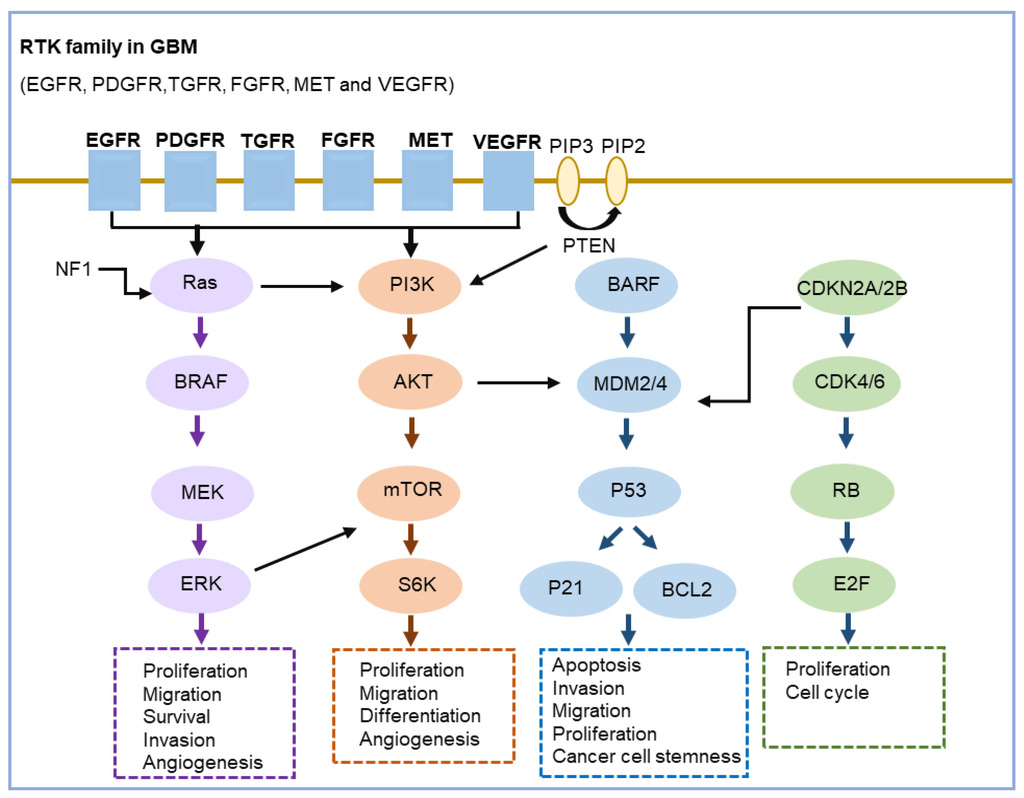
Glioblastoma: An Update in Pathology, Molecular Mechanisms and Biomarkers
www.mdpi.com
March 11, 2024, 7:07 p.m.
Glioblastoma multiforme (GBM) is the most common and malignant type of primary brain tumor in adults. Despite important advances in understanding the molecular pathogenesis and biology of this tumor in the past decade, the prognosis for GBM patients remains poor. GBM is characterized by aggressive biological behavior and high degrees of inter-tumor and intra-tumor heterogeneity. Increased understanding of the molecular and cellular heterogeneity of GBM may not only help more accurately define specific subgroups for precise diagnosis but also lay the groundwork for the successful implementation of targeted therapy.
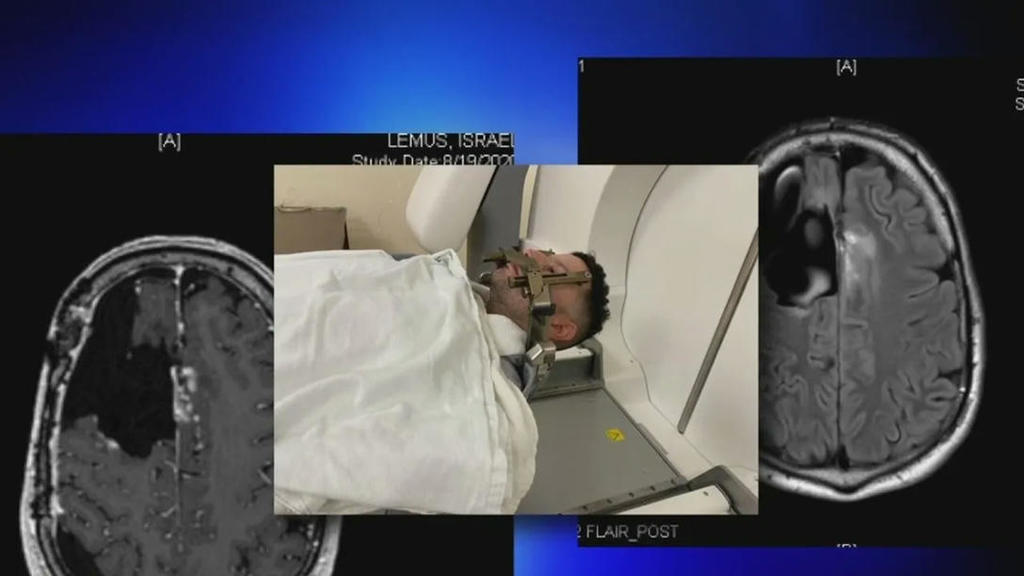
Miraculous Recovery: Man Beats Glioblastoma in Groundbreaking CAR-T Clinical Trial
bnnbreaking.com
March 11, 2024, 7:05 p.m.
According to medical literature, Ben Trotman should be grappling with a grim prognosis. Diagnosed with glioblastoma in October 2022, a type of brain cancer notorious for its rapid progression and dismal survival rates, Trotman's outlook was bleak. However, after participating in a world-first clinical trial, his cancer has effectively vanished, marking an unprecedented victory against one of the most aggressive cancers known to medicine.
Share on
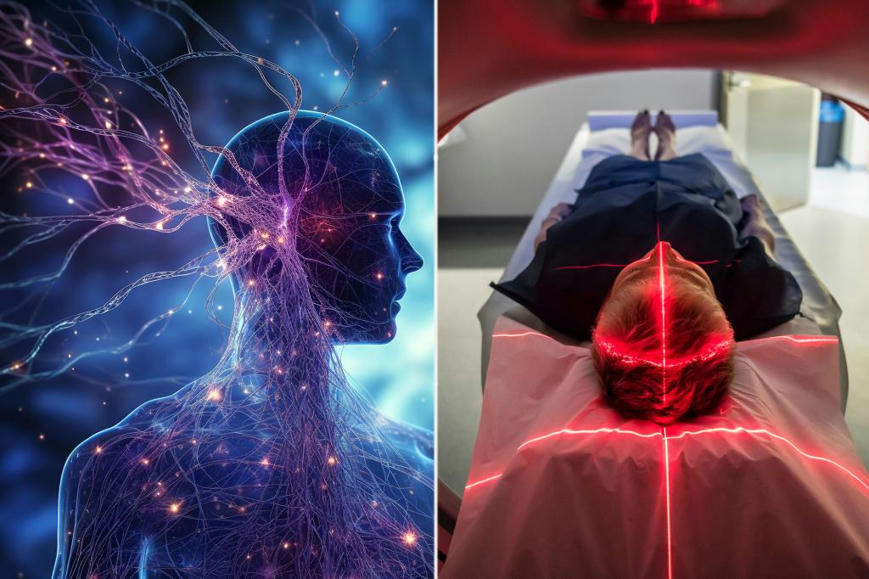
'Olive oil drug' may help treat deadly brain tumor glioblastoma
nypost.com
Feb. 28, 2024, 9:12 a.m.
There is no cure, but idroxioleic acid, or 2-OHOA, a novel drug derived from oleic acid — the key fatty acid in olive oil — will be tested on newly diagnosed glioblastoma patients in an upcoming study in London. The medication alters the walls of tumor cells to stop the cancer from growing or spreading.
Share on
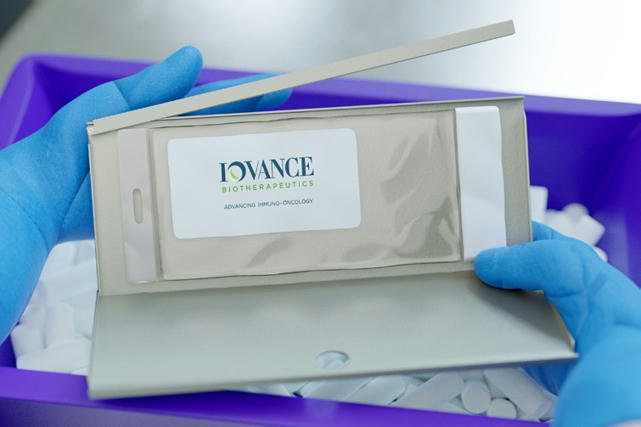
FDA Approves Iovance Cancer Treatment, the First Cell Therapy for a Solid Tumor
medcitynews.com
Feb. 21, 2024, 10:59 p.m.
Iovance Biotherapeutics’s Amtagvi is now the first FDA-approved treatment based on type of cell called a tumor-infiltrating lymphocyte. The regulatory nod in advanced melanoma also makes Amtagvi the first cell therapy approved for treating a solid tumor.
Share on
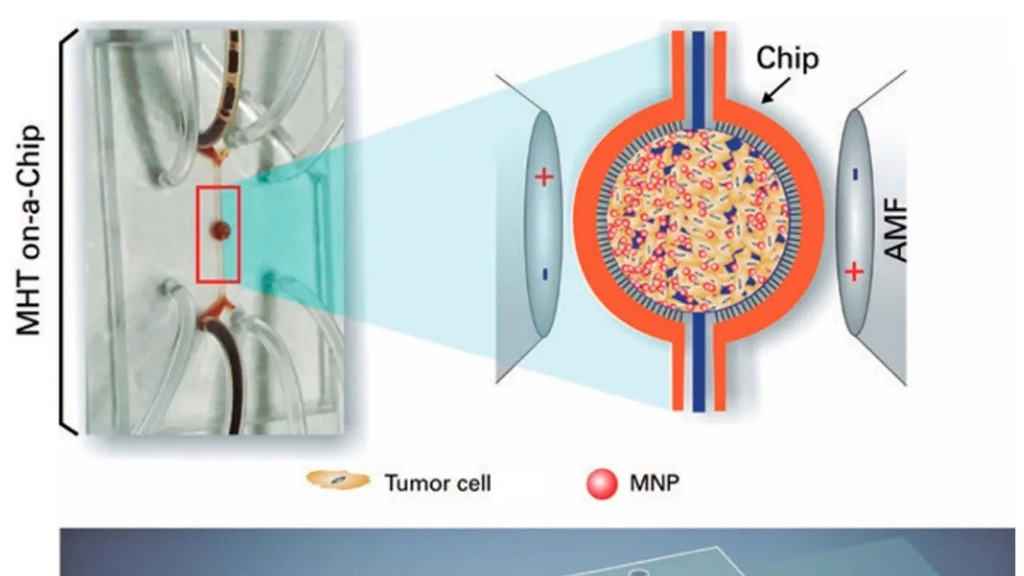
Breakthrough in Glioblastoma Treatment: Cancer-on-a-Chip Validates Anti-Tumor Drug
bnnbreaking.com
Feb. 19, 2024, 11:32 a.m.
In a groundbreaking development, researchers from the Institute of Biomedical Research of Lleida (IRBLleida) and the University of Lleida (UdL), in collaboration with the Aragon Health Research Institute and the University of Zaragoza, have validated the use of cancer-on-a-chip technology to examine the effect of an anti-tumor drug against glioblastoma. The study, published in the prestigious journal Nature Biotechnology, was funded by the European Union's Horizon 2020 research and innovation program.
Share on
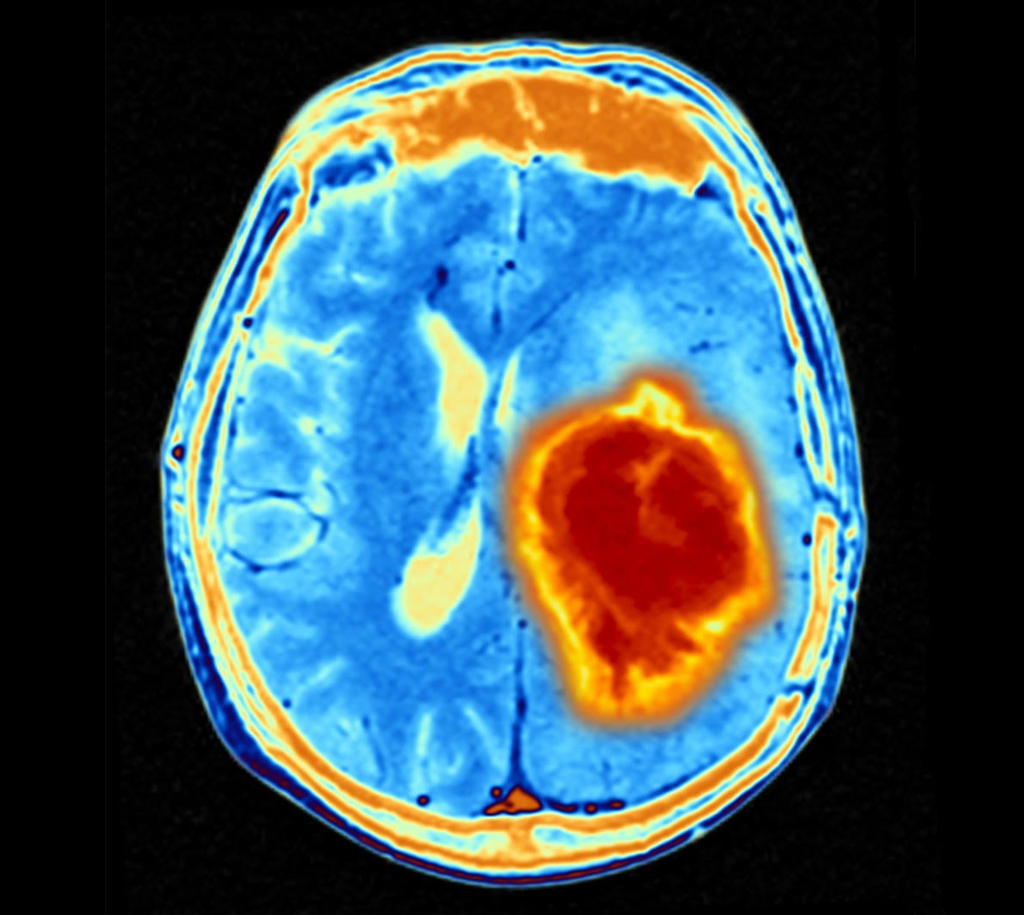
Novel Barrier That Impedes Glioblastoma Response to Chemotherapy Uncovered
www.genengnews.com
Feb. 19, 2024, 11:30 a.m.
The major mechanisms of resistance of GBM to alkylating chemotherapy such as TMZ revolve around DNA repair, cell cycle progression, and anti-apoptosis. Now, researchers at the University of Sussex have discovered that an understudied protein called PANK4 acts as an obstacle that blocks cancer cells from responding to chemotherapeutic treatment for glioblastoma. Their findings may lead to new studies that further research PANK4 and the development of a potential drug to reverse chemo-resistance and improve outlook for patients.
Share on
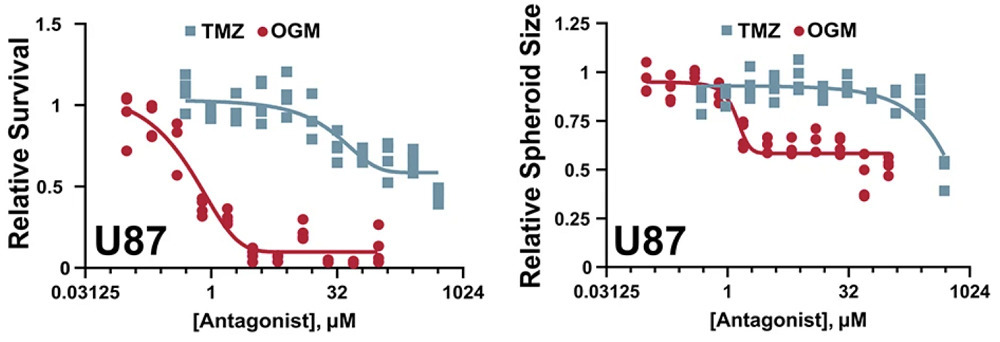
New Drug Shows Promise Against Glioblastoma
www.longecity.org
Feb. 19, 2024, 11:29 a.m.
A new study by a group of scientists from Michigan State University might represent a much-needed breakthrough. The authors used the fact that a highly acidic tumor environment is a hallmark of glioblastoma. This acidity is a result of aerobic glycolysis, also known as the Warburg effect. Normally, glycolysis only happens when oxygen levels are low, but cancer cells switch to this less efficient energy production pathway even in normal conditions because it provides them with important survival benefits.
Share on

Olivia's Battle Against Glioblastoma: A Story of Hope and Resilience
bnnbreaking.com
Feb. 12, 2024, 12:37 p.m.
Olivia Szabo's life took an unexpected turn when a fall led to a shocking discovery: a brain tumor. As Olivia bravely faces her 18-month chemotherapy treatment, her family and community rally around her, offering love, support, and hope. Her story underscores the importance of early detection and intervention in treating brain tumors, and serves as a poignant reminder of the resilience of the human spirit and the power of unity in the face of adversity.
Share on

GPR68-ATF4 signaling is a novel prosurvival pathway in glioblastoma activated by acidic extracellular microenvironment
ehoonline.biomedcentral.com
Feb. 7, 2024, 11:27 a.m.
Here, we describe the discovery of a novel class of small molecule GPR68/OGR-1 inhibitors named ogremorphins, and using this class, we show that GPR68-ATF4 signaling is a novel glioblastoma pro-survival pathway activated in an autocrine manner by extracellular protons. Moreover, we show that genetic and pharmacological disruption of GPR68 signaling in glioblastoma cells induces ferroptosis, an iron-mediated cell death program, across a diverse set of GBM lines.

Perampanel Treatment in Progressive Glioblastoma Patients Around Surgery
www.physiciansweekly.com
Feb. 7, 2024, 11:18 a.m.
As a repurposed drug inhibiting neuron-glioma synapses and glioblastoma growth in preclinical models, the success of perampanel in the clinical setting could mark a crucial breakthrough, indicating the potential benefits of disrupting neuron-cancer interactions for patients. This endeavor lays the groundwork for a larger confirmatory trial, shaping the landscape of glioblastoma therapeutic strategies.
Share on
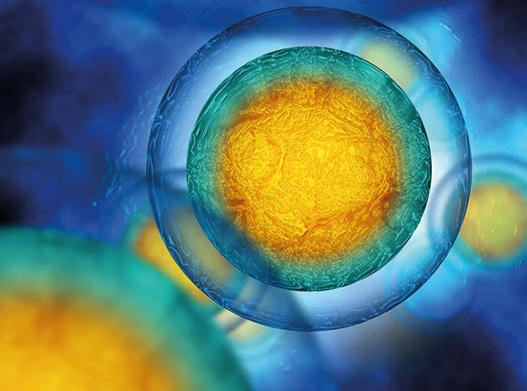
Study reveals AI can predict patients’ survival in glioblastoma
pharmatimes.com
Feb. 7, 2024, 11:17 a.m.
Instead, by giving patients an instantaneous and accurate prediction from a single routine MRI scan, the AI will allow doctors to identify patients who would not benefit from chemotherapy and try a different course of treatment or begin an experimental treatment in a clinical trial. After training the AI on a dataset of over 10,000 scans from a variety of patients with brain cancer, it “showed improved performances when first trained to detect abnormalities,” explained Alysha Chelliah, PhD researcher, KCL.
Share on